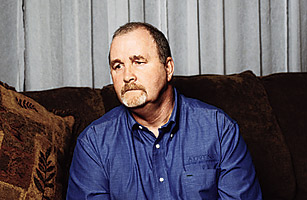
This is Matt’s day, Albert Snyder kept telling himself that March morning in 2006, hours before he laid his only son to rest. This is about Matt. Concentrate on Matt. Ignore them. Them were the seven protesters he had been warned about who were planning to picket his son’s funeral. They had never met Lance Corporal Matthew Snyder. They didn’t know much about him except that he had been killed in Iraq the week before. And yet they had flown more than 1,000 miles to brandish signs saying things like “You’re going to hell,” “God hates fags” and “Thank God for 9/11.” The 70 members of Westboro Baptist Church in Topeka, Kans., stage protests at military funerals around the country because they believe God is punishing troops for America’s tolerance of homosexuality–even when those killed, like Matt, were not gay–and that all of God’s judgments must be celebrated. Al Snyder rerouted the funeral procession so his family wouldn’t have to see the protesters, among them a 13-year-old girl with a blond ponytail who held a sign that said, “Thank God for dead soldiers.” He wanted to spend the day thinking about his son, remembering Matt as the funny 20-year-old kid whose ears stuck out of his Marine cap. Or as a 3-year-old demanding a black little sister because he loved Rudy Huxtable on The Cosby Show. But Snyder couldn’t concentrate during the funeral. He kept wondering how much of the protest the 1,200 mourners had seen as they drove to the church in Westminster, Md. Later that day, at the home of Snyder’s parents, someone flicked on a news report about Matthew’s funeral. Snyder saw the protest signs. He heard Fred Phelps, founder of the Westboro church–most of its members are his relatives–spewing more hate. “Turn it off! Turn it off!” someone yelled. Too late. Now, more than four years later, Snyder is still stuck on the day of Matt’s funeral. “Every time I think of him, I think of these a_______,” says Snyder. “I have to think of the shock that was on my daughter’s face when she saw the signs. I have to see the hurt in my dad’s eyes when his grandson gets killed and then he has to go through this.” Time passed, but the pain remained. “To me, what they did was just as bad, if not worse, than if they had taken a gun and shot me. At least the wound would have healed.” Snyder ultimately sued Westboro, a move that set the stage for an epic First Amendment battle that reached the Supreme Court on Oct. 6. What exactly does the First Amendment protect–the Phelpses’ right to freedom of speech or Snyder’s rights to peaceful assembly and freedom of religion? And what happens when these values are in conflict? In October 2007, a federal jury found Westboro members liable for intentional infliction of emotional distress, invasion of privacy and civil conspiracy against Al Snyder. It awarded Snyder $10.9 million in damages, which the judge eventually lowered to $5 million. But in September 2009, the Fourth Circuit Court of Appeals overturned the verdict, citing free-speech protections for the protesters. The appellate court added to the public outrage by ordering Snyder to pay the Phelpses’ $16,510 in legal fees. Bill O’Reilly offered to pick up the tab; donations, many from veterans groups, more than covered it. See “Resistance Records: All You Need is Hate.”